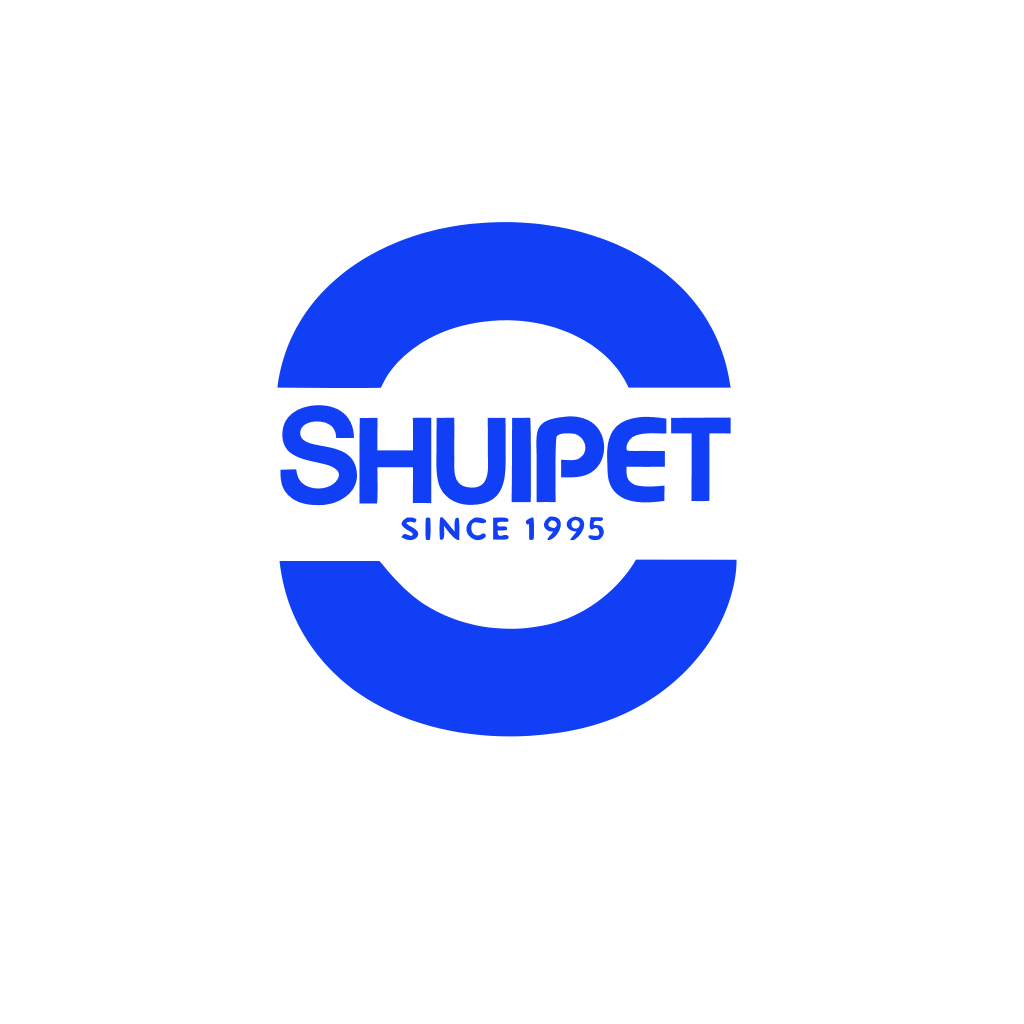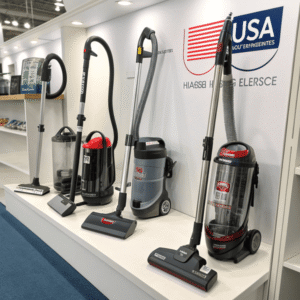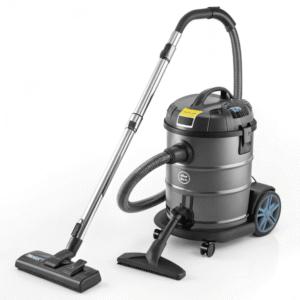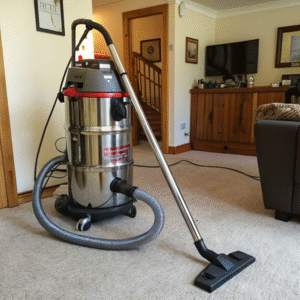What vacuum cleaner do professionals use?
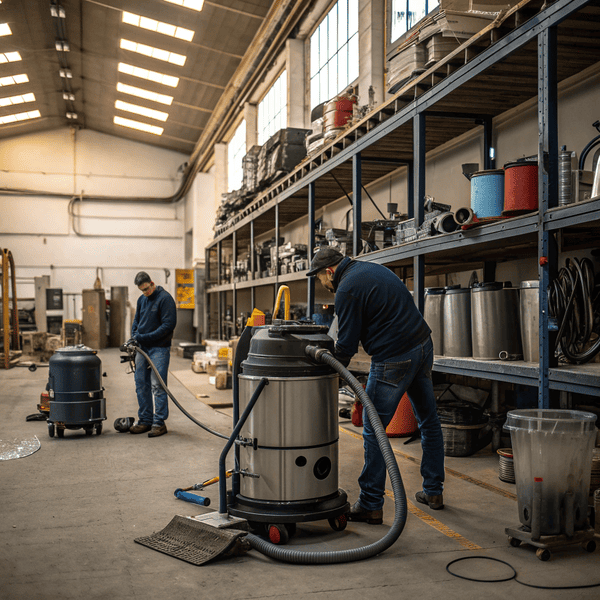
Keeping any professional space spotless is a real challenge, especially when consumer-grade vacuums just can’t keep up. If you need deep cleaning, durability, and efficient performance, you have to think like a pro.
Professionals use heavy-duty or commercial-grade vacuum cleaners that offer powerful motors, advanced filtration systems (often HEPA), and large dust capacities, providing reliable performance for frequent or large-scale cleaning jobs [1][3][4][10].
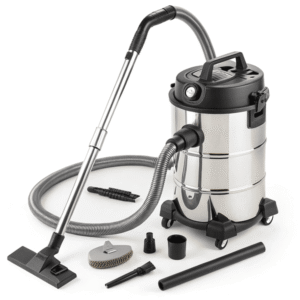
When you need a tool that gets the job done right, it is important to look beyond the standard household brands. There are specific qualities that make a vacuum suitable for professional use: When you need a tool that gets the job done right, it is important to look beyond the standard household brands. There are specific qualities that make a vacuum suitable for professional use: stronger suction, higher durability[^1], and the ability to handle either dry, wet, or hazardous materials depending on the job
[^1]: Exploring the significance of durability will guide you in selecting a vacuum that lasts longer and performs better.
, higher durability, and the ability to handle either dry, wet, or hazardous materials depending on the job. Commercial and industrial vacuums come in many forms—upright, canister, backpack, and even specialty machines for wet-dry cleanups. These vacuums aren’t just about power; they are also built for efficiency and reliability, meaning less downtime and more cleaning done in less time. Once I started using a proper commercial vacuum in my own projects, I realized how much easier it made my work, like how much less time I spent wrestling with clogs or changing dust bags.
What vacuums do detailers use?
Restoring a car’s interior to perfection with an ordinary vacuum is wishful thinking. Auto detail professionals need Restoring a car’s interior to perfection with an ordinary vacuum is wishful thinking. Auto detail professionals need strong suction[^1], versatility, and reliability.
[^1]: Explore this link to discover top-rated vacuum cleaners that provide the strong suction needed for effective auto detailing.
, versatility, and reliability.
Professional detailers commonly use powerful portable wet/dry shop vacs like the Ridgid WD4070 or flexible handhelds with strong suction and key attachments like crevice tools [6][8].

Let’s dig into why experienced auto detailers insist on these types of vacuums. First, a good shop vac (such as the Ridgid WD4070) delivers both portability and enough power to lift all the dirt, sand, and pet hair trapped in carpets and cracks [6]. Its 4-gallon capacity is more than enough for most detailing jobs and, with good care, it lasts for years. The small size makes it easy to move around the shop or load up for mobile detailing jobs. Important features that detailers look for include strong suction (usually a 5+ peak horsepower motor), a manageable hose and power cord, and compatibility with pro-quality detailing attachments like crevice tools, soft brushes, and pet hair adapters [6][8]. For quick touch-ups or small jobs, detailers may also use cordless handhelds. Brands frequently trusted in the detailing community include Ridgid, MetroVac, and Armor All, as well as some handheld models from Black+Decker and Dyson for small spaces [8]. Ultimately, the best vacuum for detailing is one that balances suction, maneuverability, and a set of useful accessories tailored to automotive cleaning challenges.
| Feature | Why It Matters for Detailing | Typical Pro Choices |
|---|---|---|
| Suction Power | Removes grit deep in carpets/crevices | 4-5+ HP shop vacs, strong handhelds |
| Attachments | Allows cleaning in tight spots, vents, seams | Crevice tool, brushes, flexible hoses |
| Portability | Easy movement around vehicles/shop | Compact wet/dry vacs, handhelds |
| Reliability | Withstands frequent use in tough conditions | Ridgid, MetroVac, Armor All |
What is a commercial grade vacuum?
If you are responsible for keeping a business, school, or busy public area clean, an average vacuum won’t make the cut.
A commercial grade vacuum is designed for frequent, large-area cleaning, built with robust motors, higher filtration (often HEPA), and larger dust capacities to endure the demands of professional use [10][12].
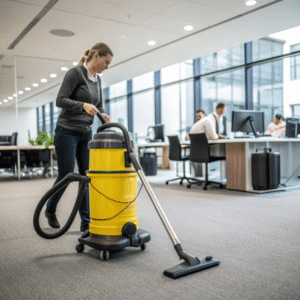
Commercial vacuums can be upright, canister, or backpack-style[^1]. They are built to work for hours at a time, day after day, in spaces like hotels, schools, retail stores, and healthcare settings
[^1]: Learn about the benefits of backpack-style vacuums, which offer mobility and efficiency for cleaning large areas.
can be upright, canister, or backpack-style. They are built to work for hours at a time, day after day, in spaces like hotels, schools, retail stores, and healthcare settings [12][13]. These machines come equipped with powerful motors (often 1700W or higher), sturdy construction, and advanced filters to trap dust and allergens—keeping indoor air noticeably cleaner [9][12]. Motor wattage and suction performance outstrip standard home vacuums, and the dust bins or bags are larger, so there’s less downtime to empty or replace supplies. By law and for practical reasons, many commercial models require three-prong power cords for added safety. Brands like Nilfisk, Karcher, Sanitaire, Bissell Commercial, and Johnny Vac are known for producing highly regarded commercial vacuums [12][13]. Don’t forget: even if they’re pricier up front, these vacuums often save money over time by outlasting multiple residential units in a business environment.
| Attribute | Commercial Vacuum | Residential Vacuum |
|---|---|---|
| Motor Power | 1700-2000W or dual motors | 1000-1250W |
| Filtration | HEPA/hospital-grade, multi-stage | Basic (often single) |
| Build Quality | Steel/composite, heavy-duty | Light plastic |
| Bag/Canister | 8+ liters | 1-3 liters |
| Attachments | Wide variety, industrial-duty | Fewer, basic |
| Cord | Heavy-duty, three-prong, long | Shorter, two-prong |
What is the difference between a regular vacuum and an industrial vacuum?
Not every job needs a monster vacuum, but some messes can only be tackled by machines made for the big leagues.
Industrial vacuums are built for heavy-duty and hazardous cleaning, offering stronger suction, larger tanks, and enhanced durability compared to regular vacuums, which are designed for light, home use [1][4][14][15].
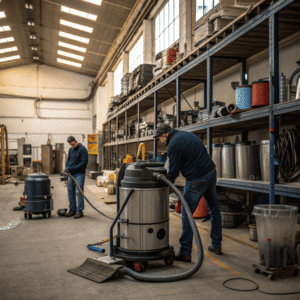
Industrial vacuum cleaners are a step above Industrial vacuum cleaners are a step above commercial models[^1]. They are tailored for the most demanding settings—factories, construction sites, food processing plants, pharmaceutical
[^1]: Learn about the key differences between commercial and industrial vacuum cleaners to make an informed choice.
. They are tailored for the most demanding settings—factories, construction sites, food processing plants, pharmaceutical companies, metal shops, and other environments with heavy or hazardous debris [1][4][15]. These machines have extremely powerful motors (rated by suction strength in kPa or water lift and airflow/CFM), extra-large tanks (20-100+ liters), and advanced filters for safe handling of hazardous dust (HEPA or even ULPA for fine or toxic particles) [1][4][14]. Features like wet/dry capability, explosion-proof models, and chemical-resistant tanks are common. Industrial vacuums are heavier and louder than regular vacuums, with robust frames and wheels for easy movement. They also have special certifications for hazardous environments, such as ATEX [4][14]. Regular vacuums simply cannot match this level of performance and durability. Choosing between the two comes down to what you need to clean—household dirt, or an endless stream of sawdust, metal shavings, hazardous particulates, or spills.
| Comparison Point | Regular (Residential) Vacuum | Industrial Vacuum |
|---|---|---|
| Usage | Home cleaning, small spaces | Factories, warehouses, heavy industries |
| Suction Power | Low-moderate | High-very high (20-50+ kPa) |
| Filtration | Basic | HEPA/ULPA, advanced multi-stage |
| Capacity | 1-3 liters dust bin | 20-200+ liters tank |
| Durability | Light duty | Heavy duty, continuous operation |
| Specialized Features | Few (basic attachments) | Wet/dry use, explosion/chemical safe |
| Cost | Low-moderate | High, but longer lifespan/ lower downtime |
Conclusion
Professionals choose commercial or industrial vacuums for their strength, durability, and ability to handle demanding tasks—qualities that standard home vacuums can’t match.
